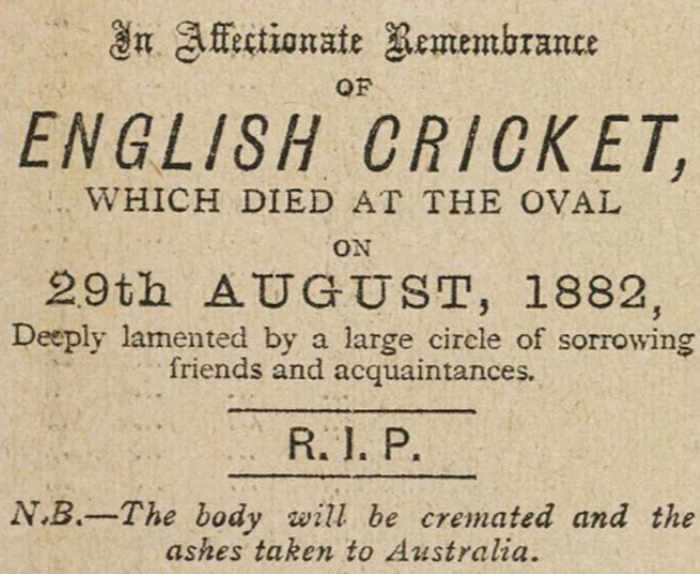Isn’t it time to ditch having schools on team sheets?
Alex Berry argues why this is a tradition best left behind

While scrolling absentmindedly through Instagram one procrastination-filled Easter term afternoon, I fell upon the team sheet for an upcoming men’s Blues cricket match. Upon scanning the sheet for people I recognised, the thing that caught my attention was actually the second list next to the names; a list consisting of the schools and universities attended by each of the players prior to attending Cambridge, followed by their current college. My first, and quite simple, question on seeing this: how are the schools each player used to attend at all relevant to the next match?
Coming from a relatively unknown state comprehensive school in the north-east, I’d never expected to be asked “what school did you go to?” multiple times in Freshers week and beyond, knowing how unlikely it was that any of the people asking would have ever heard of my school. I had the same feeling on seeing these team sheets, not quite understanding the obsession over whether or not you went to a “good” school.
One of the main conclusions I’ve come to is that the people asking this question are only really interested in the names they recognise, which are almost always private and grammar schools. If the whole team had come from small state comprehensives in remote towns, I doubt they would bother including their schools on a team sheet, because what would be the point if the names meant nothing to the majority reading it? Although I doubt this particular issue will be faced by many sports teams at Cambridge.
It baffles me that the school you went to seems to be enough of a defining characteristic of someone to include on something that contains little else than your name. Many different teams include the schools attended next to their players in Varsity match programmes, but this at least makes more sense due to the accompaniment of a longer profile of information about each player, recognising that there are other, more important bits of information to touch on.
For many state school students, one of these more important bits of information should be the local team they played for. Especially in sports like cricket, state school players will rarely play for their schools (largely due to a severe lack of funding in comparison to private schools), so why not instead highlight the place where they actually played the most sport?
It’s important to note that it’s not due to a lack of pride in my school that I would like to see this scrapped. In the unlikely event I make a Blues team, I would be more than proud to see “Whitley Bay High” breaking up a list of private schools, but I am uncomfortably aware that the purpose of including the player’s schools is not to praise those who have achieved a great deal from a slightly less advantaged background, but to show off all of those sophisticated students educated at only the very best of schools.
The fact that so many of these lists consist of private schools and respected grammar schools interspersed with the occasional state comprehensive is not one to be proud of. It seems to only reinforce the stereotypes around Cambridge and its sporting system as being for those who have, or parents who have, money. Understandably, these stereotypes are strongest for sports like cricket and rugby, but even the men’s blues football is dominated by players who were privately educated – a concerning fact given that, at a school level, football is the only sport consistently dominated by state schools.
It’s not all bad news though, as, interestingly, the women’s blues football team is the reverse, with a high number of state school players. The women’s cricket team also seem to do better on this front relative to their male counterparts, but there is still room for improvement all round.
The recent findings of the Independent Commission for the Enquiry in Cricket (ICEC) ,after a two-year investigation into equity in cricket, described the prevalence of “elitism and class-based discrimination”, as well as the structural and institutional racism and the treatment of women as “subordinate”, in cricket. 42% of players surveyed in the ICEC report were privately educated, a much higher proportion than the 7% of the general population. We would be ignorant if we didn’t acknowledge that this elitism is likely just as, if not more, embedded in sport in Cambridge as it is in the wider population, this team sheet tradition being a subtle example.
I’m all for increasing transparency on the composition of these teams, but I’m not sure a custom rooted in elitism and disguised as a tradition is the way to do that. At a time when we should be focused on promoting unity and inclusivity in sport, surely we should be ditching a practice that’s main aim appears to be to accomplish an uncomfortable display of unwarranted superiority? Let’s drop the idea that someone’s old school is enough of a defining characteristic to be written on a team sheet, and instead focus on information that’s actually relevant to the match.
 News / Cambridge student numbers fall amid nationwide decline14 April 2025
News / Cambridge student numbers fall amid nationwide decline14 April 2025 Lifestyle / First year, take two: returning after intermission14 April 2025
Lifestyle / First year, take two: returning after intermission14 April 2025 News / First candidate to announce chancellorship bid pledges to tackle bullying 12 April 2025
News / First candidate to announce chancellorship bid pledges to tackle bullying 12 April 2025 News / Uni to ‘review’ tripos rankings and weekend lectures in undergrad teaching overhaul10 April 2025
News / Uni to ‘review’ tripos rankings and weekend lectures in undergrad teaching overhaul10 April 2025 Sport / Cambridge celebrate clean sweep at Boat Race 202514 April 2025
Sport / Cambridge celebrate clean sweep at Boat Race 202514 April 2025




